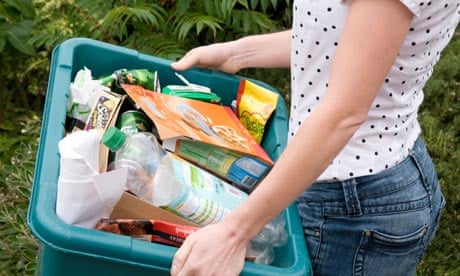Small business owners often say that they would recycle more if there was an established infrastructure and it was easy to do so. In light of this, government departments launched the Business Waste and Recycling Services Commitment, making it easier for small and medium enterprises (SMEs) to recycle more of their business waste by working with local authorities. The 12-step programme, which local authorities voluntarily sign up to, offers tailor-made services, clear pricing structures and guidance on business' legal responsibilities.
By signing up to the commitment, councils agree to provide reliable and regular collections, help businesses recycle and give reasonable and clear fees – all essential to ensure firms recycle their waste in the long term. But since its launch last October, how many businesses are actually aware of the commitment and whether their local authority has signed up?
In the current climate recycling, or any other environmental actions, come pretty low down the list of priortities for most business owners. That is until they realise that, by improving the way they deal with resources, either by generating less waste or by recycling more, they can actually generate financial benefits for the business. However, the solution needs to be easy, cost effective and flexible to their needs.
There is already an established system to collect waste and recycling from households – why can't this be extended to business premises as well? Materials such as paper, cardboard, drinks cans, plastic bottles and packaging are found in many offices and retail outlets, while restaurants, hotels and larger firms or organisations that still have canteens, will generate food waste. The majority of these materials are regularly collected from households on a weekly or fortnightly basis, with over 50% of schemes now collecting materials all in one container.
Business owners often find it difficult to get organisations to collect their recycling because they don't have that much material, theirs is the only premisis to collect from and they're required to separate out materials into different containers or bags. By incorporating collection into the regular household rounds, these issues can be resolved. And if it's easy to do we're likely to see more businesses get involved.
Collaboration between the business community, landlords and organisations collecting materials for recycling would be required, to ensure the maximum opportunity was realised. Some in the waste and recycling industry prefer to collect materials separately, but from a practical point of view this isn't very feasible. Lack of storage space and time means that, in reality, this isn't going to happen.
The quality of the material to be collected is important – it needs to be good and separate from food waste or other contaminants. Dry materials (paper, cardboard, plastics and metals) collected in one container can generate good revenues. It's all about how this material is viewed. Let's stop talking about waste and call it a resource. This places a greater value on it and means we're more likely to treat it positively. .
A strong good communications campaign is needed to support this new approach, that offers continuous engagement, rather than an occasional nudge. Staff within businesses need to be educated on the importance of recycling and increased resource efficiency, the benefits it's bringing to the business and the potential improvements to their job security.
A separate payment structure would need to be agreed that clearly demonstrates the financial benefits of not sending everything to landfill. With Landfill Tax costs increasing year on year – in April this tax will rise to £64 per tonne – this shouldn't be difficult to do. The technology to track which bins belong to which business has been around for a while, it's just a question of implementing it.
Businesses are increasingly being required to comply with environmental legislation and the enforcement of this will only get tougher. In some parts of the country councils are starting to employ enforcement officers who will check if businesses are abusing the household waste and recycling collection service. Businesses should not recycle their materials through their household recycling scheme. Pre-treatment regulations require businesses to show how they are treating materials prior to disposal (recycling materials such as paper would be one way of complying), and since last September firms have to demonstrate they have considered waste prevention and recycling options, rather than sending materials straight to landfill.
Introducing new ways of doing things requires collaboration among people who have perhaps not interacted before. It will mean businesses speaking to their neighbouring organisations and is likely to include some compromise. It's about doing things differently and making people responsible for the waste they generate.
Jane Rayner is director of environmental consultancy Lulu Consulting Ltd
This content is brought to you by Guardian Professional. Become a GSB member to get more stories like this direct to your inbox

Comments (…)
Sign in or create your Guardian account to join the discussion